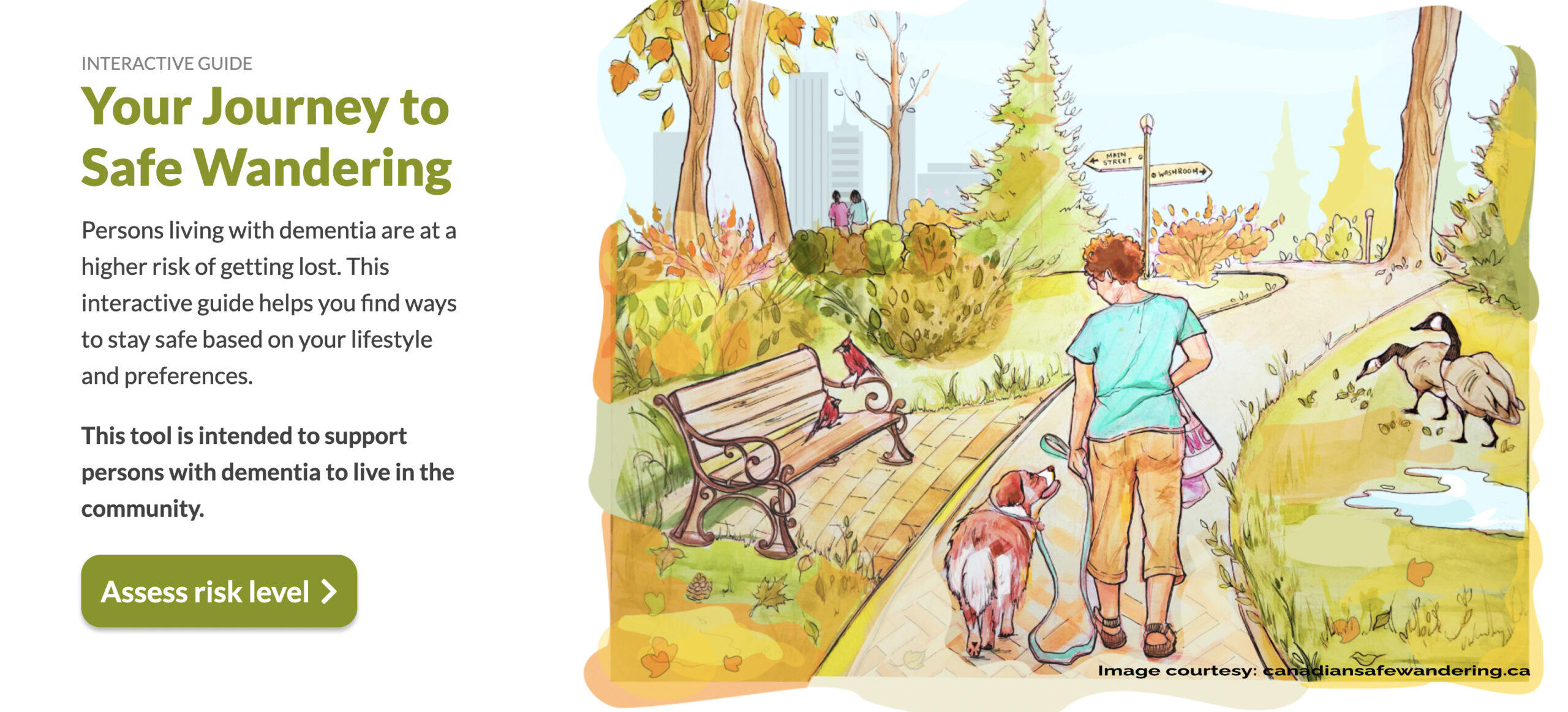As a growing proportion of the world’s population reaches old age, the incidence of people living with dementia is expected to rise from 55 million globally to 78 million by 2030, according to the World Health Organization, and 139 million by 2050. People with dementia are more likely to wander and get lost but a new tool developed by researchers at the University of Waterloo, Canada can help support persons with dementia to remain active in their communities by using safe wandering.
Contrary to a common belief that wandering is aimless walking and without purpose, among people with dementia, wandering can be a healthy way to stay engaged and provide meaningful activity. However, there is a risk that a person living with dementia may become disoriented, risk harm from busy traffic, or be affected by weather conditions. Safe wandering can be promoted among those with memory loss with the use of a locator device, a preplanned route, or by carrying their name and home address in their wallet.
Creating an advanced safety plan in case a person with dementia becomes lost is invaluable. Using an online quiz, the Canadian Guideline for Safe Wandering helps families develop safe practices for people with dementia while they are out wandering. The website also shares the positive aspects of wandering. Suggestions for protecting persons with dementia while maintaining their freedom are based on risk level – strategies can be customized for individual needs and made a daily habit. Taking a walk at the same time each day, and carrying a phone with GPS services and a family member or friend’s number programmed to call for help are a few of the helpful suggestions to promote safety.
The Guideline for Safe Wandering received support from Age-Well NCE and was developed by the University of Waterloo’s Aging and Research Innovation Program. Individuals, with support from a caregiver, if appropriate, can take the online wandering risk assessment, and receive suggestions for staying safe in their community.
Although Alzheimer’s disease is the most common and accounts for about 60 to 70 percent of dementias, there are other forms including vascular dementia, Lewy bodies, frontotemporal dementia and dementia that can develop following a stroke, certain infections, repetitive brain injury, harmful alcohol use and nutritional deficiencies. There is no cure for dementia and therapies to date have limited efficacy. Dementia care includes optimizing well-being through activities that promote physical, cognitive and emotional health, managing and understanding behaviour changes, and providing long-term support and education to caregivers.






Add Your Voice
0 Comments
Join the Discussion